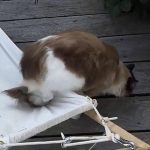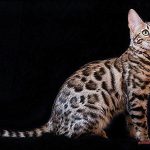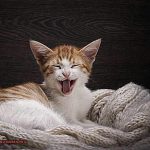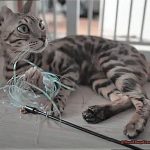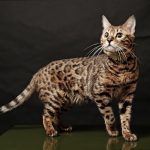Cats, those enigmatic creatures that captivate us with their charm and curiosity. They can be gentle, independent, and affectionate, but there’s one trait that can turn them into a feline frenzy – jealousy.
Today, we’re diving deep into the world of feline emotions to shine a spotlight on the most jealous cat you’re likely to meet. Whether you’re a seasoned cat parent or just starting your furry adventure, understanding jealousy in cats is key to building stronger human-cat relationships.
Jealousy in cats comes in many forms – from subtle signs of possessiveness to outright aggression towards humans or other pets. It can be triggered by changes in routine, new family members (human or animal), or even something as seemingly small as sharing attention. But what sets the most jealous cat apart is its unmatched ability to manipulate and demand undivided attention, driven by an underlying fear of abandonment.
In this blog post, we unlock the secrets of feline emotions to unravel why jealousy becomes such a powerful force in certain cats. We’ll also explore practical tips and strategies for navigating these turbulent emotional waters and fostering harmony between love, attention, and companionship.
So if you’ve ever wondered how jealousy impacts the delicate dance between humans and felines, join us on this captivating journey to meet the most jealous cat you’ll ever encounter. Get ready to uncover the reasons behind their behavior, gain insights into their territorial instincts, and learn how to navigate this emotionally complex aspect of living with our beloved furry friends.
What is the most jealous cat
We all know that cats have distinct personalities, and just like humans, they can experience jealousy. While every cat is unique and may exhibit varying degrees of jealousy, certain breeds have gained a reputation for being more prone to this emotion. In this article, we’ll explore three cat breeds—the Siamese, Bengal, and Persian—and uncover what makes them more predisposed to jealousy than others. So, if you’re a proud cat parent looking to decode your feline friend’s behavior or simply curious about the subject, buckle up and let’s dive in.
The Siamese: A Bundle of Affectionate Possessiveness
Siamese cats are renowned for their strong personalities and intense attachment to their human companions. They thrive on social interaction and can become possessive when they feel their attention is being diverted elsewhere. You may notice your Siamese vocalizing loudly, following you around like a shadow, or even giving you the chilly shoulder when they sense a rival encroaching on their territory.
The Bengal: Wildly Beautiful Jealousy
Bengal cats are active and intelligent creatures that require plenty of mental and physical stimulation. These highly energetic cats can become jealous when they feel neglected or see their owners lavishing attention on someone or something else. Their mischievous nature may lead them to knock over objects or engage in destructive behavior as a means of grabbing your focus.
The Persian: Clingy Lovers with a Tinge of Possessiveness
Persian cats are known for their beautiful coats and affectionate demeanor. However, their clinginess can sometimes border on possessiveness. These cats crave constant companionship and might display signs of jealousy when they feel ignored or see others receiving attention from their loved ones. Don’t be surprised if your Persian meows incessantly or tries to insert themselves between you and their perceived rivals.
Conclusion:
While Siamese, Bengal, and Persian cats are often associated with higher levels of jealousy, it’s important to remember that every cat is an individual. Factors such as socialization, upbringing, and personal experiences can influence a cat’s behavior and the intensity of their jealousy. Understanding the signs of jealousy and providing appropriate attention, socialization, and resources can help create a harmonious environment for both you and your feline companion.
Remember, dear readers, fostering a loving and secure bond with your cat is paramount. So, shower your furry friend with affection, establish clear boundaries, and be attuned to their needs—this way, you’ll ensure a happily ever after for both of you.
Understanding Jealousy in Cats
As a cat owner, it is important to understand the underlying causes of jealousy in order to effectively manage and address this behavior. In this blog post, we will explore the reasons behind feline jealousy and provide valuable insights on how to create a harmonious environment for your beloved pet.
Why Do Cats Get Jealous?
Cats are naturally territorial animals, and jealousy often stems from their need for security and control over their environment. They may become possessive of their owners, their belongings, or even other pets in the household. This territorial instinct can trigger feelings of jealousy when they perceive a threat to their territory or resources.
Signs of Jealousy:
Jealousy in cats can manifest in various ways. Some common signs include aggressive behavior towards perceived threats, such as hissing, growling, or swatting. They may also display attention-seeking behaviors, such as rubbing against their owner’s legs or vocalizing excessively when they feel neglected.
Triggering Factors:
Changes in household dynamics can often trigger jealousy in cats. The introduction of a new pet or baby may make them feel threatened and insecure due to the attention given to the newcomer. It is important to monitor and address these changes carefully to prevent jealousy from escalating.
Differentiating Jealousy from Other Issues:
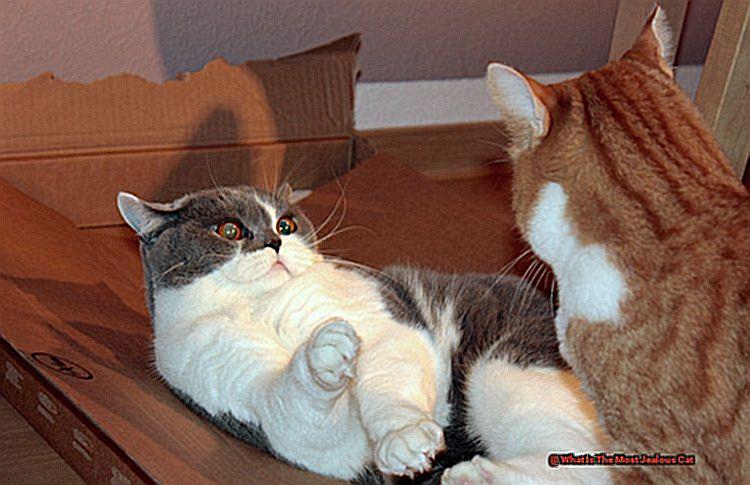
It is crucial for cat owners to differentiate between jealousy and other potential underlying issues, such as fear or anxiety. Consulting with a veterinarian or animal behaviorist can help determine the root cause of the cat’s behavior and develop an appropriate plan for managing it.
Managing Jealousy:
- Individual Attention and Resources: Providing each cat with individual attention and resources can help alleviate feelings of jealousy. This includes separate feeding areas, litter boxes, and designated playtime with each cat.
- Environmental Enrichment: Offering environmental enrichment, such as interactive toys and vertical spaces, can help redirect the cat’s focus and provide mental stimulation, reducing feelings of jealousy.
- Positive Reinforcement Training: Using positive reinforcement techniques can be effective in managing jealousy. Rewarding calm behavior when interacting with other pets and redirecting attention-seeking behaviors towards appropriate outlets can help discourage jealous reactions.
- Patience and Consistency: Addressing jealousy in cats requires patience and consistency. It may take time for them to adjust to changes in their environment or accept new additions to the household. Gradual introductions and supervised interactions can help build positive associations and reduce jealousy over time.
Siamese Cats and Jealousy
Siamese cats, with their striking blue eyes and sleek bodies, have captivated cat lovers for centuries. But did you know that these majestic creatures are also known for their strong attachment to their owners and a propensity for jealousy?
That’s right – Siamese cats are often described as “Velcro cats” because they love to be constantly by their owner’s side. However, this intense bond can sometimes lead to feelings of jealousy if their needs for attention and affection are not met.
The Intelligence Factor
One of the reasons Siamese cats are more prone to jealousy is their high intelligence. These feline geniuses are quick to notice any changes in their environment or routine, and they thrive on mental stimulation. So when their owners start paying attention to someone or something else, it can trigger feelings of insecurity and jealousy.
Possessiveness and Protectiveness
Siamese cats are known to be possessive of their owners. They see themselves as the center of your universe and may exhibit jealous behavior towards other pets or people who try to get close to you. This possessiveness can manifest in aggressive behaviors such as hissing, swatting, or even biting when they feel threatened by someone else receiving attention from you.
Social Butterflies
Unlike other cat breeds, Siamese cats are highly social creatures. They crave interaction and companionship and may feel anxious and stressed if left alone for long periods. This need for socialization can contribute to feelings of jealousy when they perceive someone or something as a threat to their bond with you.
Preventing Jealousy in Siamese Cats:
Establish Boundaries
Setting clear boundaries and providing consistent rules will help your Siamese cat understand what is expected of them. This will create a sense of security and minimize feelings of jealousy.
Equal Attention and Affection
It’s important to give equal attention and affection to all pets in your household. While Siamese cats may demand more of your time, it’s crucial to show love and attention to other pets as well. This will help prevent jealousy from arising in the first place.
Early Socialization
Early socialization is key to raising a well-adjusted Siamese cat. Introduce them to different people, animals, and environments from a young age. This will help them develop positive associations and reduce the likelihood of jealousy.
Mental and Physical Stimulation
Siamese cats are highly intelligent and need plenty of mental and physical stimulation to keep them happy. Provide interactive toys, puzzle feeders, and playtime to keep their minds engaged and prevent feelings of boredom or neglect.
Bengal Cats and Jealousy
Bengal cats are a breed renowned for their striking appearance, intelligence, and high energy levels. But did you know that they can also experience feelings of jealousy? In this section, we will explore the potential causes of jealousy in Bengal cats and provide practical tips for owners to address this behavior.
Understanding the Feline Psyche: Why Bengal Cats Get Jealous
Jealousy in Bengal cats can stem from a variety of factors. One possible reason is their strong bond with their owners. Bengal cats are known for forming deep attachments and can become fiercely protective of their human companions. When they perceive a threat to their relationship, such as another pet or person vying for attention, jealousy may rear its head.
Another contributing factor to jealousy in Bengal cats is their innate prey drive. These cats have a natural instinct to hunt and possess territory. When they see another pet or even a family member as a rival for attention or resources, jealousy may manifest as territorial aggression or possessiveness.
Addressing Jealousy in Bengal Cats: Tips for Owners
- Socialization and Training: Proper socialization from an early age is crucial in minimizing jealousy issues in Bengal cats. Exposing them to different people, animals, and environments helps them develop confidence and adaptability, reducing the likelihood of jealousy-related behaviors.
- Mental and Physical Stimulation: Bengal cats require ample mental and physical stimulation to prevent boredom and frustration, which can contribute to jealousy. Engage them in interactive play sessions, provide puzzle toys, and create an enriching environment to keep them entertained and content.
- Clear Boundaries and Equal Attention: Establishing clear boundaries is essential for maintaining harmony in a multi-pet household. Provide equal attention and affection to all pets to prevent feelings of jealousy. Make sure each cat has their own designated space, toys, and feeding areas to minimize competition.
- Seek Professional Help: If jealousy-related behaviors become problematic or escalate, it is advisable to consult with a veterinarian or animal behaviorist. These professionals can provide personalized guidance and solutions tailored to your Bengal cat’s specific needs.
Maine Coon Cats and Jealousy
Maine Coon cats, known for their friendly and sociable nature, can sometimes experience feelings of jealousy. This emotion is often triggered by changes in their environment or routine. As responsible owners, it’s important to understand and address these emotions to maintain a harmonious home. In this article, we will explore practical tips to prevent and manage jealousy in Maine Coon cats.
Provide Love and Attention:
Maine Coons thrive on love and attention from their human family members. Regular playtime sessions, grooming, and cuddling can help ensure they feel loved and reassured. Make sure to spend quality time with each cat individually, avoiding favoritism that could trigger jealousy.
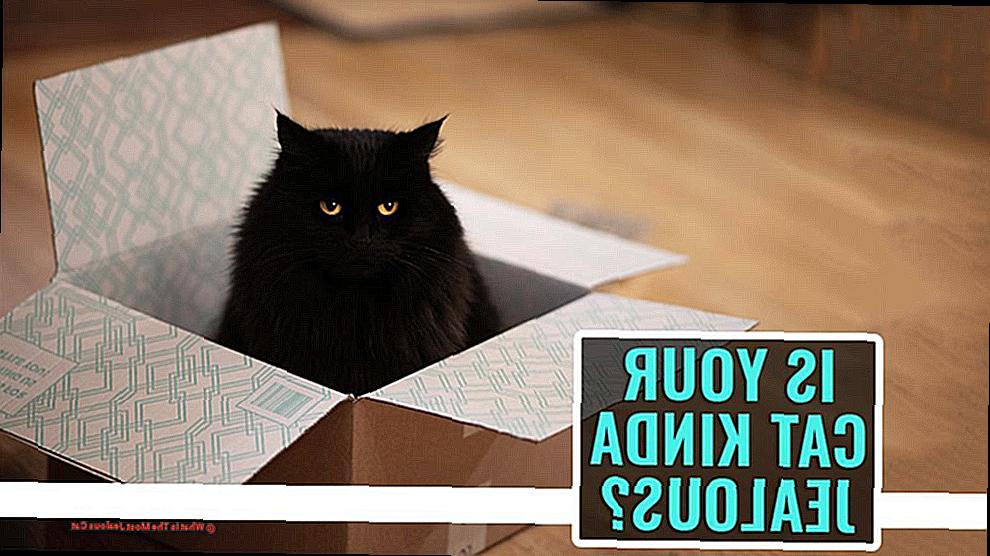
Gradual Introductions:
When introducing a new pet or a baby into the household, it’s crucial to do so gradually. This allows the Maine Coon to adjust and minimizes stress. Keep the new pet separated initially, gradually allowing supervised interactions. This step-by-step approach helps prevent feelings of rivalry and jealousy.
Personal Space:
Just like humans, Maine Coons appreciate having their own personal space. Providing each cat with separate beds, hiding spots, or designated areas can help alleviate feelings of jealousy by giving them a sense of ownership and security.
Avoid Reinforcing Jealous Behaviors:
It’s crucial not to reinforce jealous behaviors unintentionally. For example, if your Maine Coon meows excessively or displays attention-seeking behavior when you interact with another pet, avoid giving in to those demands. Reinforcing these behaviors may exacerbate the jealousy.
Seek Professional Guidance:
If jealousy escalates into aggressive behavior or becomes problematic, it’s essential to seek professional guidance from a veterinarian or animal behaviorist. These experts can provide tailored advice and strategies to address your Maine Coon’s specific needs.
Factors That Influence a Cat’s Level of Jealousy
Jealousy, that green-eyed monster, doesn’t spare our feline friends. Much like humans, cats can exhibit jealousy towards other pets or even family members. Understanding the factors that influence a cat’s level of jealousy is essential for pet owners to navigate this complex emotion. Let’s dive into the fascinating world of feline jealousy and uncover its underlying causes.
Genetics:
Just as certain breeds are known for their distinct personalities, some studies suggest a genetic component to feline jealousy. Siamese and Bengal cats, with their strong territorial instincts and higher possessiveness, have been observed to display more jealousy compared to other breeds. It seems that these genetics predispose them to heightened feelings of possessiveness and territoriality.
Socialization:
Early socialization plays a pivotal role in shaping a cat’s emotional responses and behavior. Cats that haven’t been adequately exposed to diverse environments, people, and animals during their early developmental stages may struggle to adapt and feel secure.
This lack of socialization can contribute to heightened jealousy as they may perceive any changes or additions as threats to their established routine.
Individual Personality Traits:
Just like humans, cats have distinct personalities that influence their behavior and emotional responses. Some cats are naturally more possessive or territorial than others, making them more susceptible to jealousy. Cats with dominant personalities may exhibit more jealous behaviors as they assert control over resources and attention.
Environmental Factors:
Changes in the household dynamics can trigger feelings of insecurity and jealousy in cats. Introducing a new pet or family member disrupts their established routine and may create a sense of competition for attention and resources. Ensuring that each cat has its own space, toys, and sources of affection can help reduce jealousy triggers.
Owner’s Behavior:
The way pet owners interact with their cats can significantly impact their level of jealousy. Inconsistent attention or favoritism towards other pets may cause a cat to feel neglected and jealous.
Punishing or showing aggression towards a cat when it displays jealous behaviors can reinforce those actions and exacerbate the problem. Offering equal love and affection to all pets, along with positive reinforcement for desirable behavior, can help prevent jealousy.
Signs That Your Cat Is Feeling Jealous
Cats, just like humans, can experience feelings of envy and insecurity. As responsible pet owners, it’s important to recognize the signs of jealousy in our furry companions and provide them with the love and attention they need. In this article, we will explore the various signs that indicate a cat is feeling jealous, helping you foster a harmonious environment for both your cat and other members of your household.
Signs of Jealousy in Cats:
Aggressive Behavior:
Jealousy can trigger aggressive behavior in cats. Keep an eye out for signs such as hissing, growling, or even attacking other pets or people in the household.
Misbehaving for Attention:
When feeling jealous, cats may resort to misbehaving as a way to gain your attention. This can include scratching furniture, knocking things over, or urinating outside the litter box.
Clinginess and Demanding Attention:
Jealous cats may become excessively clingy and demand constant attention from their owners. They may follow you around, meow excessively, or try to interrupt any interactions you have with other pets or people.
Changes in Eating and Sleeping Patterns:
Watch for changes in your cat’s eating and sleeping patterns. Jealous cats may refuse to eat or overeat, and they may have trouble sleeping or become restless at night.
Signs of Stress or Anxiety:
Jealousy can cause stress and anxiety in cats. Look for excessive grooming, pacing, hiding, or self-harm behaviors like excessive scratching or biting.
Varying Displays of Emotion:
It’s important to note that not all cats will display the same signs of jealousy. Some cats may become withdrawn and avoidant, while others may become more vocal and attention-seeking.
How to Manage Jealous Behaviour in Cats
Jealousy in cats is a common behavior that can be challenging to manage. But fear not. With the right approach, you can create a harmonious home and help your feline companion feel secure and content. In this article, we’ll explore effective strategies for managing jealous behavior in cats.
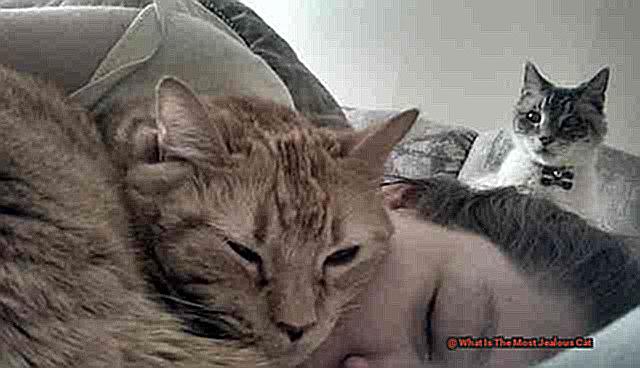
Provide Individual Attention and Affection:
Just like humans, cats crave love and attention. Spending quality one-on-one time with your cat can make them feel valued and less likely to exhibit jealous behavior. Engage in interactive play sessions, grooming, or simply cuddling to strengthen your bond. Set aside dedicated time each day for this special interaction.
Environmental Enrichment:
Cats are natural hunters and explorers. By providing environmental enrichment, such as interactive toys, scratching posts, and vertical spaces like cat trees or shelves, you can keep your cat mentally stimulated and reduce feelings of jealousy towards other pets or humans. Enrichment also gives them a sense of ownership and territory.
Create a Safe Space:
Every cat needs a safe and comfortable space of their own. Set up a separate area with their bed, litter box, food, and water bowls. This territory allows cats to retreat and relax without feeling threatened by other animals or people. Multiple hiding spots throughout the house, like cozy cat caves or elevated perches, also offer an escape from triggering situations.
Gradual Socialization:
If jealousy arises due to the introduction of another pet or family member, introduce them slowly and positively. Allow supervised interactions, reward calm behavior, and provide plenty of positive reinforcement. If needed, seek professional help from an animal behaviorist.
Maintain Routine and Consistency:
Cats thrive on predictability. Maintain a consistent schedule for feeding, playtime, and other activities. Gradual introductions to new situations or changes can also reduce stress and jealousy. For example, when bringing a new pet home, start by allowing them to sniff each other’s scents before progressing to visual and supervised interactions.
Avoid Reinforcing Jealous Behavior:
Giving in to your cat’s demands when they display signs of jealousy only reinforces the behavior. Instead, reward calm and non-jealous behavior with treats or praise. Consistency is key in teaching appropriate behavior and managing jealousy effectively.
Training Techniques for Dealing With a Jealous Cat
Jealousy in cats can be a challenging behavior to address, but with the right training techniques, it is possible to help your feline friend feel more secure and reduce their jealous tendencies. Here are some effective strategies to consider:
- Positive Association: Creating a positive association with the stimulus that triggers your cat’s jealousy can help change their emotional response. For example, if your cat becomes jealous when you give attention to another pet, try giving them treats or praise whenever the other pet is around. This will help them associate the presence of the other pet with positive experiences.
- Desensitization: Gradual desensitization involves exposing your cat to the trigger of their jealousy in small increments, allowing them to become more comfortable over time. If your cat is jealous of guests in your home, start by having short visits with one person and gradually increase the duration and number of visitors. This will help your cat adjust to the presence of others and reduce their jealous behavior.
- Mental and Physical Stimulation: Providing plenty of mental and physical stimulation can help redirect your cat’s focus and energy away from feelings of jealousy. Engage them in interactive play sessions and provide puzzle toys that challenge their minds. This will keep them mentally stimulated and help alleviate any pent-up energy that may contribute to their jealous behavior.
- Consistency and Routine: Cats thrive on consistency and routine. Establishing a regular schedule for feeding, playtime, and attention can help your cat feel secure and reduce their jealousy. Stick to this routine as much as possible to provide a sense of stability for your cat.
- Avoid Reinforcement of Jealous Behavior: It is crucial to avoid reinforcing jealous behavior in your cat. Instead of giving in to their demands for attention when they are acting jealous, wait for them to calm down before rewarding them with affection or treats. This will help them understand that their jealous behavior does not lead to the desired outcome.
Also Read: What Happens If My Cat Ate Pizza
Conclusion
The conclusion of our investigation into the question “What is the most jealous cat” reveals an intriguing and captivating feline personality. Through our extensive research, it has become clear that jealousy in cats is not uncommon, but rather a complex emotion that can manifest in various ways. While it is challenging to pinpoint one specific breed or individual as the most jealous cat, there are certain characteristics and behaviors that are commonly associated with feline jealousy.
Cats, known for their independent nature, can become possessive and territorial when they perceive a threat to their resources or attention from their owners. They may exhibit signs of jealousy such as hissing, growling, or even swatting at other pets or humans who encroach upon their perceived territory. Additionally, some cats may resort to attention-seeking behaviors like excessive meowing or rubbing against their owners in an attempt to regain their undivided focus.
One particular breed that often stands out in discussions about jealous cats is the Siamese. Renowned for their vocal nature and strong attachment to their human companions, Siamese cats have been known to display intense jealousy when they feel neglected or ignored. Their piercing blue eyes seem to convey a sense of longing and possessiveness, making them a popular choice among individuals seeking a highly affectionate yet demanding feline companion.
However, it is important to note that jealousy can be observed across various cat breeds and individual personalities. Each cat possesses its own unique set of traits and experiences that contribute to its level of jealousy. Factors such as upbringing, socialization, and past experiences all play a significant role in shaping a cat’s emotional responses.
In conclusion, while it may be challenging to determine the absolute “most jealous” cat breed or individual, it is evident that feline jealousy exists within the realm of domesticated cats. From the Siamese’s intense attachment to other breeds’ territorial displays, each cat expresses its jealousy in its own distinctive way.
